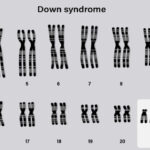For the second year running, Pfizer has arrived at the European Society for Medical Oncology (ESMO) conference armed with data showing its one-time heart failure hopeful ponsegromab can treat a wasting syndrome.
The syndrome, known medically as cachexia, is estimated to affect up to 80% of people with advanced cancer. As well as negatively affecting quality of life, the condition is thought to directly cause up to 30% of cancer deaths because muscle loss leads to heart or respiratory failure. In people with cachexia, GDF-15 is elevated and high levels of the cytokine are associated with poor outcomes.
A year ago, Pfizer tied a subcutaneous injection of the highest dose of the anti-GDF-15 antibody ponsegromab once every four weeks to a body weight gain of 3 kg at 12 weeks when compared to placebo. At the ESMO Congress 2025, the pharma has brought one-year data showing that these benefits were maintained over 12 months.
Specifically, of the 117 patients with either non-small cell lung cancer, colorectal cancer or pancreatic cancer who moved into the 12-month, open-label extension part of the trial, the average weight gain was 2.7 kg at Week 24, 4.4 kg at Week 52 and 5.2 kg at Week 64.
Patients who received a placebo in the original 24-week portion of the study showed a stabilization of their weight once moved across to the open-label extension. However, Pfizer noted in its ESMO abstract that the weight gain for these individuals was less than for those who received ponsegromab from the start.
Related
The drug continued to be safe and well-tolerated during the study’s extension, with no new safety signals, Pfizer noted.
Aside from cachexia, Pfizer had also been investigating ponsegromab as a treatment for heart failure, but the company announced in February that it had discontinued this phase 2 work.


